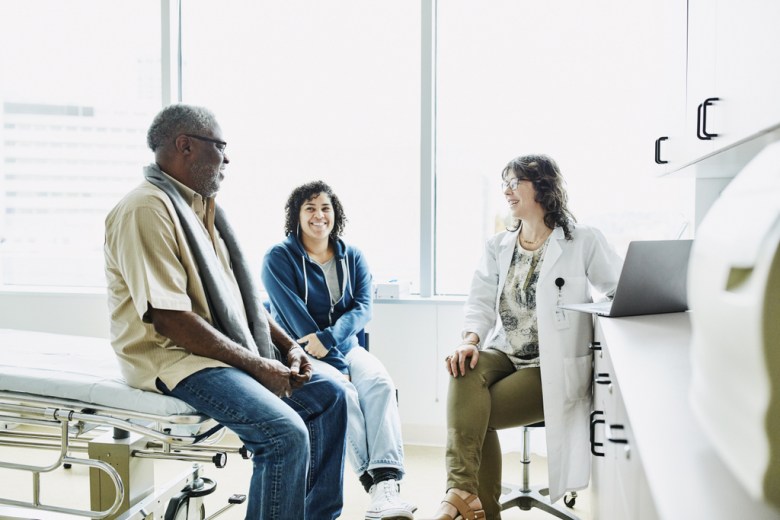
By Nicole D. Batey and Jessica Dortch
Special to the AFRO
The coronavirus pandemic shed light on the disparities in health care at every level, especially for African Americans. While the world unites to continue the fight against deadly virus, in the United States; minorities are grappling with the pressure of yet another health concern to manage.
One of those concerns is a leading cause of death in the Black community, pre-COVID; and its implications often plague people for years, if not the rest of their lives.
What is kidney disease?
Kidney disease is a cocktail of conditions that ultimately weakens or damages the kidneys over time. As the disease progresses, it can trigger other problems including heart disease, weak bones and nerve damage.
It is important to note that two of the main causes of the disease are high blood pressure and diabetes, which according to the experts are responsible for two-thirds of cases.
Ironically, diabetes and high blood pressure are two of the leading causes of death in the Black community.
According to the National Institute of Diabetes and Digestive and Kidney Diseases (NIDDK), Americans make up 13% of the total U.S. population, but account for 35% of people diagnosed with kidney failure. They are also four times more likely than their White counterparts to develop kidney failure.
Dialysis and the Black community
Most people in the Black community know at least one person who is either on dialysis and in need of, or has already received, a kidney transplant. As a result, many wind up on dialysis indefinitely as a primary form of treatment.
When the kidneys are failing, the body has difficulty remaining chemically balanced and cleaning the blood system. Dialysis is used to rid the body of unwanted toxins, excrement and excess fluids by filtering their blood.
Unfortunately, kidneys for transplant are scarce. Unless there is someone willing to make a living donation, a person in need is looking at an average waiting period of two or three years.
Baltimore resident Ray Harris first experienced kidney failure at 26. He is now 47 and it’s his third time being on dialysis. Harris has had two kidney transplants and is currently on the waiting list for another.
“I don’t wish this experience with dialysis on anyone. It can be taxing on me emotionally, physically and mentally. Physically, it can be really tiring. Emotionally, sometimes I’m thinking, ‘Oh, I don’t want to go.’ Mentally, I believe everyone on dialysis should have a therapist to help them through this journey…After treatment, my mind sometimes feels fuzzy. There are some days I feel depressed…I’ve lost so many hours just sitting on dialysis with the machine. It’s very invasive, it doesn’t care if you have plans or not, and it’s a major lifestyle change,” said Harris.
The cost of dialysis is not cheap. According to health.costhelper.com:
For patients not covered by health insurance, a single hemodialysis treatment typically costs up to $500 or more — or, about $72,000 or more per year for the typical three treatments per week.
Fortunately for Harris, his medical expenses are covered. “I am mindful that even though I don’t like being on dialysis, it is helping to preserve my life while I’m waiting for a kidney, and I’m grateful for that.”
John McBride, 82, of Baltimore County, has been on dialysis since 2016 and goes three times a week to the DaVita Dialysis Center in Owings Mills. He will remain on dialysis for the rest of his life.
Racial disparities among kidney transplant recipients may be one of the reasons so many Black people end up on dialysis for prolonged periods of time. According to NBC10 in Philadelphia, only 20% of African Americans suffering from kidney failure receive new kidneys.
In an NBC10 interview, Dr. Jerry McCauley, director of the Division of Nephrology at Thomas Jefferson Hospital, said “You see patients dying. You see them sitting on dialysis forever and they’ll ask you, ‘Doctor, why aren’t I getting a kidney?’ And then you see other people come in and get a kidney right away.”
To change this and help more African Americans who are on dialysis increase their chances on the waitlist, Dr. McCauley, and others have worked closely with the United Network for Organ Sharing (UNOS) Minority Affairs Committee.
African Americans need to be aware of the risk factors and visit their doctor or clinic regularly to check their blood sugar, blood pressure, urine protein and kidney function. For more information about kidney health, visit kidney.org.
Harris wants everyone to know, “The cure I feel for kidney disease really is prevention taking preventative measures before you get to this point.”
Help us Continue to tell OUR Story and join the AFRO family as a member – subscribers are now members! Join here!
The post Blacks and Dialysis: A look at kidney disease in the community appeared first on AFRO American Newspapers .










